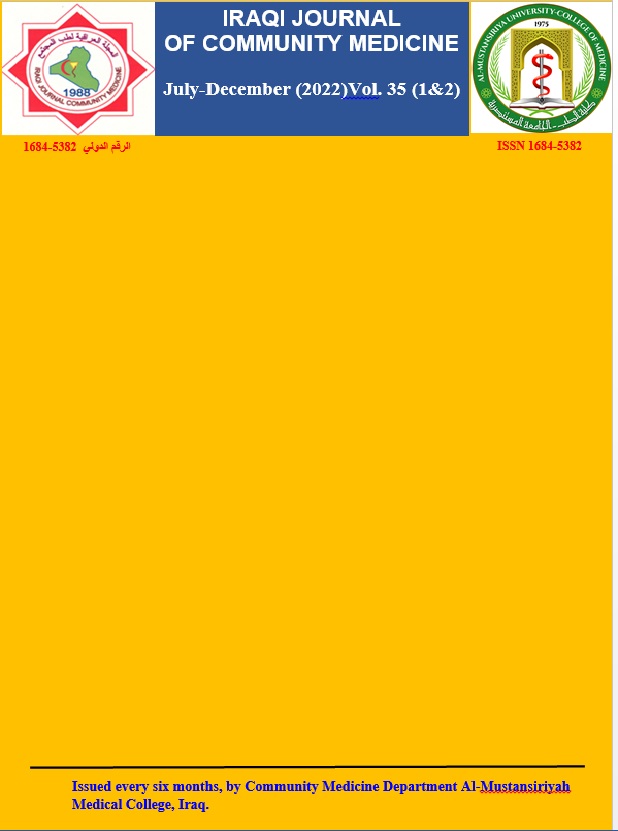Abstract
Background: Mitomycin C (MMC) is an antibiotic-alkylating agent isolated from streptomyces caespitosus. MMC acts by inhibiting DNA synthesis and inducing apoptosis in tumor cells. It has a higher molecular weight than thiotepa, so its absorption is low when used for treatment of superficial bladder cancer after transurethral resection.
Purpose: We attempted to evaluate our experience with the intravesical Mitomycin C (MMC), the available cytotoxic drug, and to identify its effect on the recurrence and progression of superficial bladder cancer after transurethral resection (TUR).
Patients & Methods: A total of 58 males, 46 to 72 years old, who had superficial bladder cancer (Ta, T1) were evaluated. However, patients with carcinoma in situ (Cis) were excluded from this study. Thirty patients were treated by TUR alone, while the remaining 28 patients were treated by TUR plus intravesical MMC.
Results: The recurrence rate after TUR alone was 43.3%, and it was 17.8% after TUR plus intravesical MMC. The progression rate was 20% and 7.1% after TUR alone and TUR plus intravesical MMC, respectively.
Conclusion: superficial bladder cancers were subdivided into low, intermediate and high-risk group for cancer recurrence. MMC showed benefit in reducing the recurrence rate in intermediate and high-risk group.
Purpose: We attempted to evaluate our experience with the intravesical Mitomycin C (MMC), the available cytotoxic drug, and to identify its effect on the recurrence and progression of superficial bladder cancer after transurethral resection (TUR).
Patients & Methods: A total of 58 males, 46 to 72 years old, who had superficial bladder cancer (Ta, T1) were evaluated. However, patients with carcinoma in situ (Cis) were excluded from this study. Thirty patients were treated by TUR alone, while the remaining 28 patients were treated by TUR plus intravesical MMC.
Results: The recurrence rate after TUR alone was 43.3%, and it was 17.8% after TUR plus intravesical MMC. The progression rate was 20% and 7.1% after TUR alone and TUR plus intravesical MMC, respectively.
Conclusion: superficial bladder cancers were subdivided into low, intermediate and high-risk group for cancer recurrence. MMC showed benefit in reducing the recurrence rate in intermediate and high-risk group.
